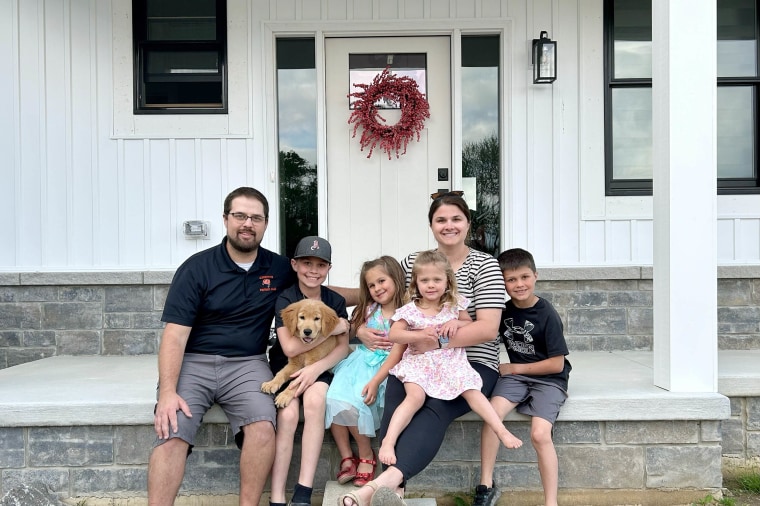In April 2021, Kayla Lindamood, then 31, was 25 weeks pregnant when she contracted COVID-19. She struggled to breathe and couldn’t get out of bed. Worried, she visited a local hospital, which soon transferred her to another hospital better equipped to care for premature babies. Even though she felt overwhelmed and weak, Lindamood understood how ill she was.
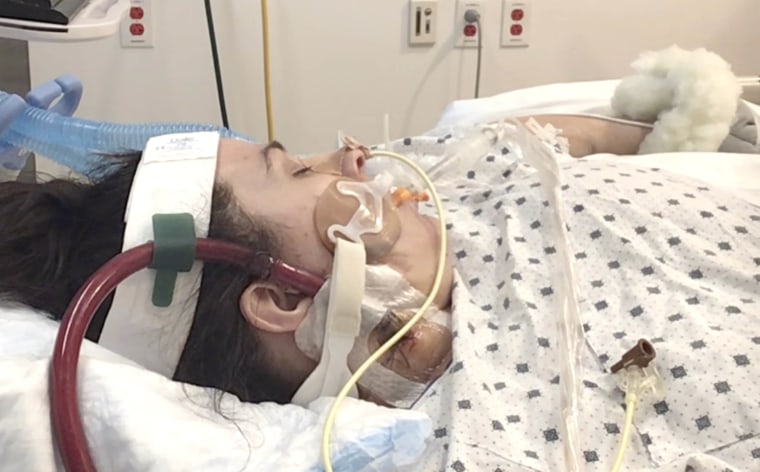
“I remember being asked what my wishes were (if I died), and they told me it was protocol, and I was like, ‘This doesn’t feel like protocol,’” Lindamood, now 34, of Almont, Michigan, tells TODAY.com. “I have three other kids at home, and (for) not one of them had I been asked that.”
Her health continued to decline, and doctors delivered the baby, Allie, early. Eventually, doctors had to transfer Lindamood to Cleveland Clinic to be treated for a rare fungal infection, mucormycosis, that she'd developed in her lungs.
Mucormycosis infections have a high mortality rate; when it spreads to the bloodstream, more than 90% of people die, says Dr. Sudhir Krishnan, pulmonary critical care physician at Cleveland Clinic.
But thanks to the care she received, Lindamood recovered and got to meet her baby.
“Miracles happen,” Lindamood says. “Even when it looks terrible, things can turn around and get better, even when it looks like it’s medically not possible.”
'Perfect storm'
Shortly after learning she'd contracted COVID, Lindamood started coughing uncontrollably, struggled to catch her breath, and couldn’t leave her bed. She hoped that drinking a lot of fluids and resting might help her feel better. The symptoms had gone on for a little over a day when her mom, Deanna Braidwood, came over and, upon seeing her daughter, insisted she go to the hospital.
“She couldn’t even walk to the car,” Braidwood, 50, tells TODAY.com.
Lindamood worried about going to the hospital during a pandemic.
“I was very scared,” she says. “I could only go to the hospital by myself, which was even more scary.”
Lindamood was then transferred to a second hospital due to her condition, and doctors there wanted to deliver her baby early because her health was declining. She was placed under anesthesia and gave birth to baby Allie at 27 weeks pregnant on May 2, 2021.
“It was just a perfect storm of being sick with COVID, being pregnant,” Lindamood says.
After delivery, “her lungs collapsed,” Braidwood recalls.
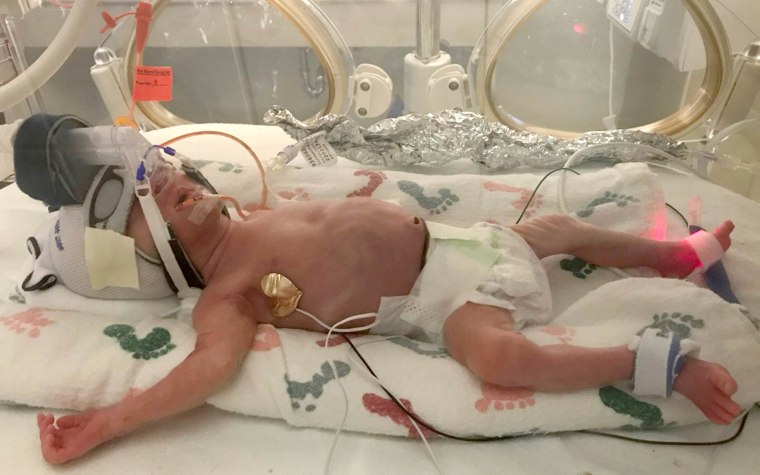
Lindamood needed a higher level of care than what the second hospital could provide, so doctors got ready to transfer her again, this time to Cleveland Clinic. On May 8, 2021, they placed her on ECMO, a machine that replaces the function of the heart and lungs, because they did not think she would survive the flight to Ohio without it, Braidwood recalls.
“They called her husband and said, ‘Things are not looking good,’” Braidwood adds.
Allie stayed in the neonatal intensive care unit in Michigan while Lindamood was in Cleveland. She had three other children at home who needed to be cared for, so her family divided up the caregiving. Lindamood’s older brother went to Cleveland to stay with her while her parents took turns with Allie in the NICU, and Lindamood’s husband stayed with the children.
In Cleveland, doctors gave Lindamood a variety of interventions, including ECMO, life support and a tracheostomy, an opening in the trachea to help oxygen reach the lungs.
After about three days at Cleveland Clinic, Lindamood's doctors realized she had mucormycosis, which is very rare but deadly. They had performed a procedure where they washed her lungs and analyzed the liquid, which found the fungus.
“They didn’t know what the outcome would be or how to even treat it,” Lindamood says. “People don’t typically survive with pulmonary mucormycosis.” It’s also not clear how she developed the infection.
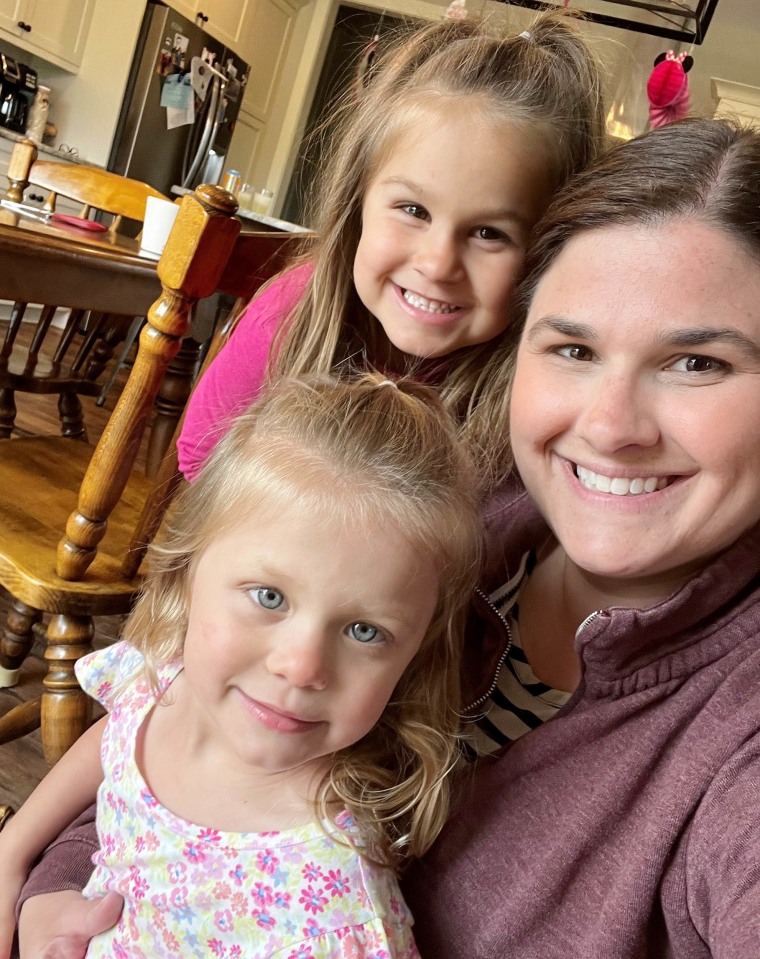
They treated her with antifungal medication in addition to the various supports she received to help her body recover. Doctors were weighing the pros and cons of surgery to remove the infected part of her lung — performing surgery in someone on ECMO can lead to complications — when something dramatic happened.
“She began to improve. ... It was unlike anything that I’ve seen, and I’ve been doing this for a few years,” Krishnan, who helped treat Lindamood in Cleveland, says. “She improved to the point where she could slowly come off the machine.”
He believes her desire to see her baby and be there for her children likely helped her.
By May 30, 2021, doctors weaned her off ECMO. Waking up when she came off the machine is one of the first things Lindamood remembered since being transferred to the second hospital.
Still, she needed time to heal and to go to a rehabilitation hospital.
“I was hallucinating. I didn’t sleep for days,” Lindamood says. “I was really struggling.”
Mucormycosis
During the COVID-19 pandemic, pregnant women often became dramatically sick, TODAY.com previously reported. Lindamood was one of those women, and having an additional fungal infection in her lungs made her situation dire.
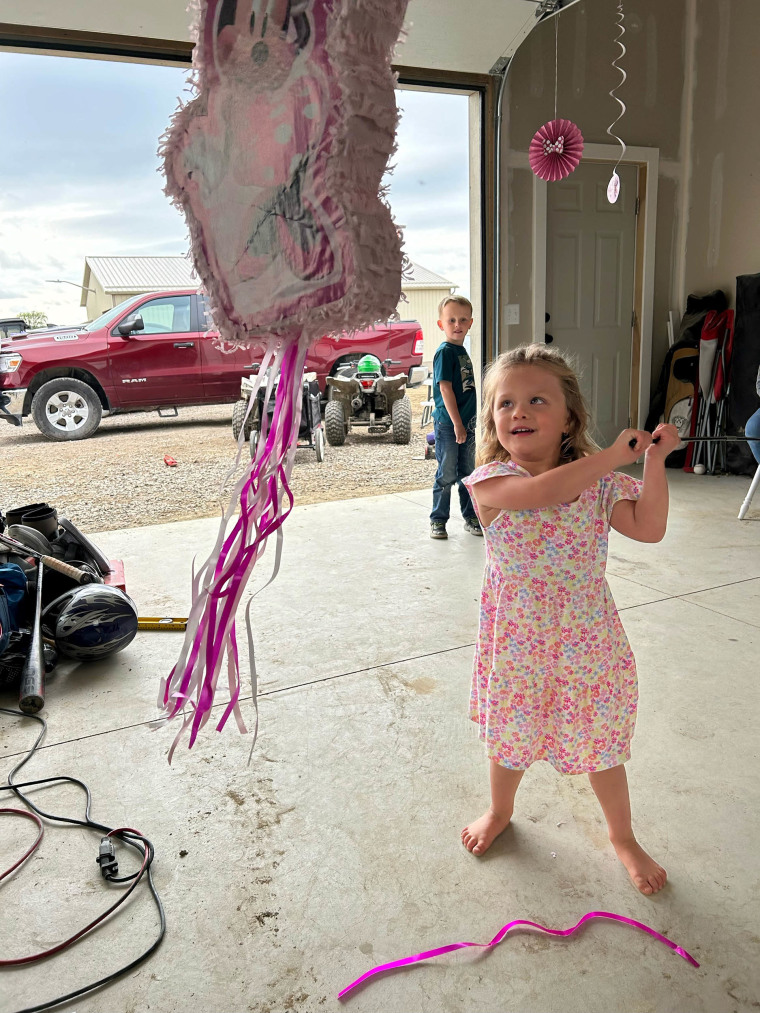
The infection created "massive cavities" in Lindamood's lungs, making it harder for her to breath, Krishnan explains. "You could see (it on) the CT scans."
Antifungal medications are often not powerful enough to completely eradicate mucormycosis. The fungus thrives by killing off tissue so the blood can't reach the areas where the fungus is and bring antibodies to fight it off.
The U.S. Centers for Disease Control and Prevention notes that people with mucormycosis in the lungs have a 76% mortality rate.
The infection usually requires surgery to remove the infected tissue. Lindamood is the first reported case to survive it without surgical treatment, according to Krishnan. “It’s one of the most incredible cases that I’ve ever been a part of," he adds.
It's not clear how Lindamood developed the infection, but COVID-19 may've played a role. Krishnan says doctors in Asia have seen an increase in mucormycosis in some COVID-19 patients, but it’s still rare in the U.S.
Reunited
Lindamood left the hospital in June 2021 but needed to go to a rehabilitation facility for a few weeks afterward. She was strong enough to return home right before Father’s Day weekend 2021. She and her husband brought Allie home that day.
“The timing was perfect,” Lindamood recalls. “Seeing her was absolutely overwhelming. I was concerned I wouldn’t be able to bond with her and my mom just laughed. She was like, ‘You could pick up a stranger’s baby and bond with them.’”
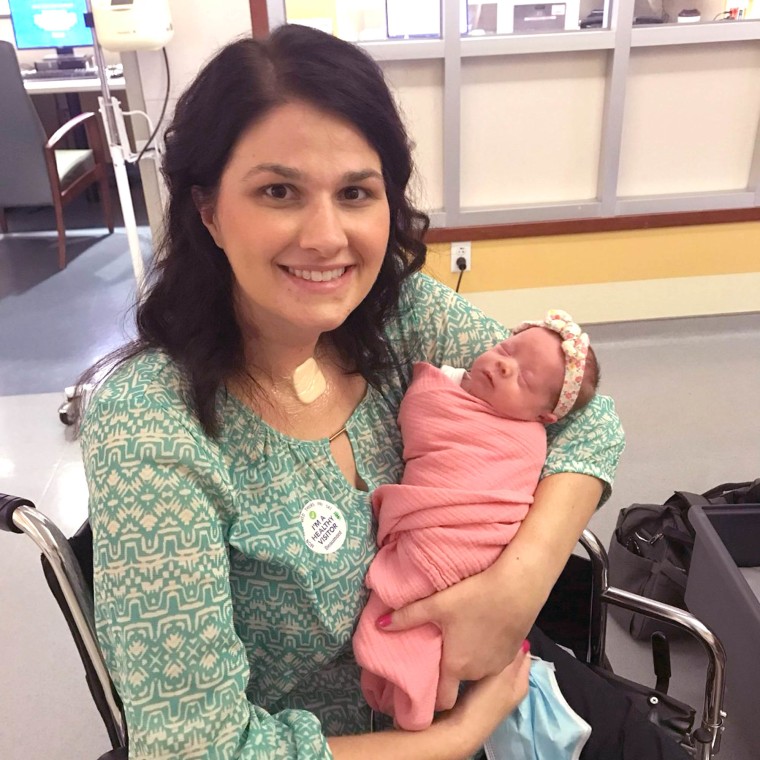
Lindamood had to get scans of her lungs every six months to see if the fungus was still active and continued taking antifungal medication. Eventually her care team started to worry that the medications would stop containing the infection. So in May 2023, she underwent surgery to remove part of her lug that still had mucormycosis.
“(Surgery is) the norm usually. She just lucked out that she went this length of time without the need for (it)," Krishnan explains.
Lindamood has since healed from the operation but realizes she might always face difficulties.
“There have been improvements, (but) I feel like I get short of breath very easily. To recover if I do a flight of stairs, it takes longer,” she says. “You adapt with what you have.”
Mentally, she faces difficulties and sometimes has flashbacks of being in the hospital. “The mental and the emotional and the social, all of that has changed so much,” she says.
Allie turned 3 on May 2, 2024. She has not experienced any developmental delays from being born prematurely and is thriving.
“She’s great,” Lindamood says. “She is just growing like crazy.”
Lindamood feels grateful for the support of her friends and family and the care she received from the Cleveland Clinic. At times, she feels humbled by her experience.
“There were so many 'Oh my God' moments throughout the whole thing,” she says. “It was amazing.”
